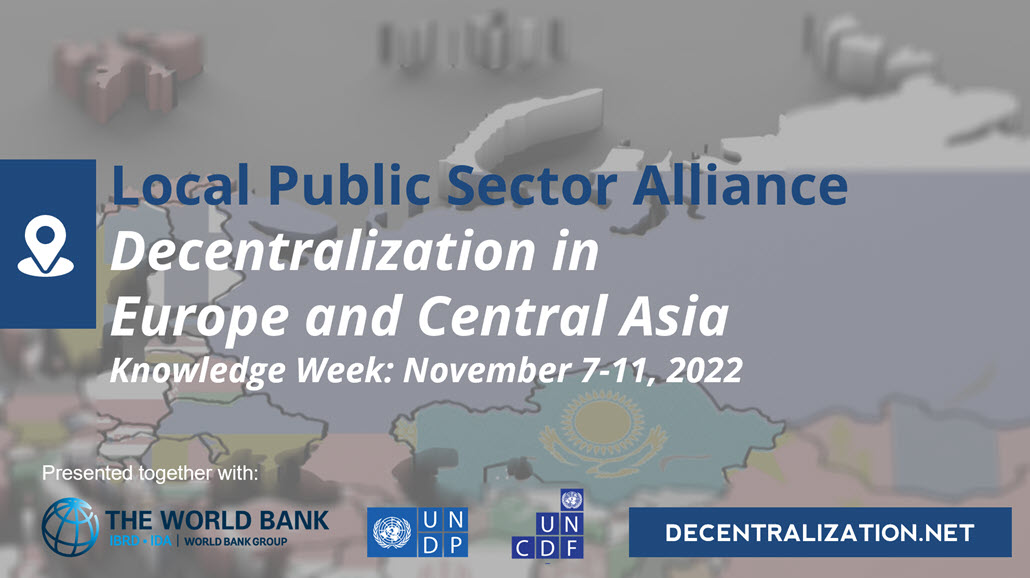
- This event has passed.
Webinar: National decentralization policies and territorial structure

The implementation of decentralization and localization has been a major public service reform in the transition countries of EECA region. A key element in their decentralization efforts is territorial administrative reforms. The issue of how to size local governments to a level in which they can be capable of supporting public services through sufficient fiscal resources to the delivery of the services to their citizens and at the same to guarantee effective form of representation at the municipal or village (sub-municipal) level has been a challenge from the start. Following the initial wave of creating small municipalities in the EECA region, there have been a significant number of countries that have undertaken the process of amalgamating or merging their local geographical units with small populations into larger population units covering more area. Some countries experimented with voluntary inter-municipal cooperation schemes others forced amalgamation by a legal instrument. This session will examine the tension between economic considerations (larger units for economy/efficiency) and political considerations (maintaining local representation and promoting democratic values). After a conceptual overview, the session will examine the experiences of a number of countries in the region that have undertaken amalgamation reforms.

